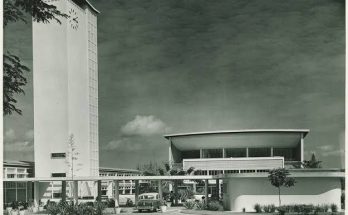Study without desire spoils the memory, and it retains nothing than it takes in- Leonardo da Vinci
Education has been recognized globally as a veritable investment pivotal to the political and economic transformation of any state. Education does not only provide the required human capital or resources but also acts as a tool in generating the necessary technological methods and know-how for economic independence.
As Nelson Mandela said that ‘Education is the most powerful weapon which you can use to change the world’, it is then the utmost burden of the government to provide to the best of her abilities exemplary education for her citizens. It is therefore seen as an investment to maximize the benefits of sustainable development. This is one of the reasons why the significance of education must continue to receive the attention of all stakeholders both at the local, state and federal levels in Nigeria.
It is however sad that since Nigeria was birthed; there has not been any appreciable investment or development in primary, secondary and tertiary institutions. The standard of education has continuously been in downward trend due to underfunding while the number of out-of-school children still remains on the increase.
Apparently, one of the core challenges in the education sector is the nature of insufficient expenditure on education. In 2015 and 2016, the allocated budget for education was N392.4billion and N369.6 billion representing 15.05% and 9.32% respectively of the total annual budget while our neighbouring country, Ghana, gave 31% allocation of budget to education. It is somewhat miserable that Nigeria has never attained the twenty-six percent (26%) budget allocation for education recommended by the United Nations Education, Social and Cultural Organization (UNESCO) for developing countries.
The underfunding, paucity of instructional materials and poor infrastructural facilities amongst others have resulted to frequent clampdown on schools through strike actions usually embarked upon by teachers/lecturers thus making teaching and learning unconducive. It is worrisome that almost all public tertiary institutions in Nigeria lack basic facilities for teaching and learning while the halls of residence remain in alarming conditions.
Recollect that Academic Staff Union of Universities (ASUU) embarked on an indefinite strike on Monday, March 23, 2020 following the insistence of the Federal Government that university lecturers under its employ must enroll on the Integrated Payroll and Personnel Information System (IPPIS). The union is also demanding the payment of its member’s Earned Academic Allowances (EAA) from 2014 to 2020, among other issues. Since then, several meetings held between the government and leaders of the union had ended in deadlock. ASUU also presented an alternative payment system, University Transparency and Accountability Solution (UTAS)) to the government which the government said it was considering and subjecting to test.
Furthermore, let us also recall that in 2002, 2003, 2006, 2007, 2013, 2017 and 2018, ASUU went on different strike actions to call the attention of the government to the enforcement of the agreements made with them. Now in 2020, ASUU is still on an indefinite strike just for the same reason; calling the attention of the government to the revitalization of our public universities. All they want is to be adequately and timely remunerated while they work. All we want is for us the students to learn in conducive lecture rooms with state-of-the-art facilities. All Nigerians want is for public universities to also level up with the standards of their counterparts across the world.
As the lecturers embark on strike action whenever they want to press home their demands, the implications of these incessant strike actions are not only seen in the welfare of the lecturers. Strike actions frequently bring about disruption in the academic calendar affecting the smooth running of education in tertiary institutions. They also implicate the enthusiasm of both teachers and students. Though, students are taking good advantage of the strike, but does this apply to all students? Many students have become depressed and on the long run will lose interest and excitement in schooling. For some, they now ‘take orders’ as much as they can. Lastly, on a large scale, it affects the development of the country as a result of shortage in human capital and underprivileged educational system.
As none of the strikes have yielded its full results, it is then evident that strike action should be the last resort and if possible should not be embarked upon. For example, ASUU went on a strike action for the enforceability of 2013 agreement, now in 2020, the fulfillment of the 2013 agreement is still part of the demands of ASUU to federal government. We want ASUU to successfully make use of collective bargaining as a proper means of communication with the federal government. As much as not being paid is undesirable, we urge ASUU and other academic unions to procure alternative and sustainable methods of earning their remunerations. We persuade the Nigerian Universities Commission (NUC) to provide home-grown solutions for sustainable development of public tertiary institutions.
To the government, we prompt them to recognise the essential responsibility of public servants; they are voted in to represent the passionate interest of the people. We plead that the government become responsive to the cries and wails of the lecturers. There is no gainsaying the fact that it is the lecturers’ right to be well paid when they work. It is depressing to hear that teachers work for months without being suitably compensated. The poor conditions of our primary, secondary and tertiary institutions also dent the country’s image. Therefore, there is an urgent need to aggressively and purposefully fund the educational sector with a view to generating the needed human capital capacity and develop the country. As students, we hope that we will be able to learn seamlessly without the fear of being constantly interrupted for months. We yearn that when next we resume for academic activities, the lecture rooms, libraries and halls of residence will be refurbished. We also wish that the required facilities will be provided to facilitate proper education. We expect that the federal government will now and always put the state of the nation’s educational sector at heart with the uncorrupted devotion to invest in it. Finally, we dream that our hopes will not be dashed and once again, we will be proud to reply when we are called ‘Greatest Nigerian students’.



